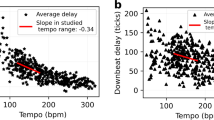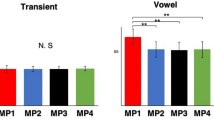Abstract
I HAVE read with considerable interest the letter by Mr. Paul R. Heyl on this subject in your issue for January 23. Speaking off-hand, I should have agreed with Mr. West, that pitch rises with distance; but, in view of the experience of your later correspondent's grandfather, I am inclined to adopt the contrary view. Many years ago I was sitting with an organist friend listening to a fugue on an organ—I think the player was the late Mr. Thomas Adams, and the fugue one of the immortal “Forty-eight” of Bach. At any rate, it was in a minor key; but I noticed that the last chord was major. “Why,” I asked my friend, “does he end with a major chord?” “Because,” was the reply, “sound has a tendency to rise in a long building like a church, and therefore the writer anticipated this by writing his final chord with a major third.” But was this the reason? If the late Mr. Knauff was right, it was probably to allow for the third dropping, and the chord reaching the listeners as a minor chord, in keeping with the rest of the piece.
This is a preview of subscription content, access via your institution
Access options
Subscribe to this journal
Receive 51 print issues and online access
$199.00 per year
only $3.90 per issue
Buy this article
- Purchase on Springer Link
- Instant access to full article PDF
Prices may be subject to local taxes which are calculated during checkout
Similar content being viewed by others
Author information
Authors and Affiliations
Rights and permissions
About this article
Cite this article
FREEMAN, R. Change of Pitch of Sound with Distance. Nature 65, 317–318 (1902). https://doi.org/10.1038/065317e0
Issue Date:
DOI: https://doi.org/10.1038/065317e0
Comments
By submitting a comment you agree to abide by our Terms and Community Guidelines. If you find something abusive or that does not comply with our terms or guidelines please flag it as inappropriate.



